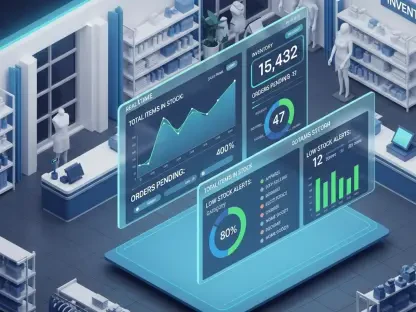In today’s ever-evolving technological landscape, Zainab Hussain is at the forefront of retail cybersecurity. As an e-commerce strategist with a wealth of experience in customer engagement and operations management, Zainab has been instrumental in guiding companies through the complexities of digital threats. This interview delves into Next’s recent cybersecurity advancements, its innovative partnership with Infobip, and the strategies she’s supporting to safeguard customers and businesses alike.
Can you explain the recent cybersecurity challenges Next has faced, and what prompted the partnership with Infobip?
Next, like many retailers, has been continuously targeted by cyber-attacks, particularly as these threats have become more sophisticated. We needed a solution that was robust enough to protect against artificially inflated traffic and phishing, which are on the rise. The partnership with Infobip arose from our need to leverage state-of-the-art technology to preemptively intercept these attacks while maintaining the quality of our customer interactions.
How does Infobip’s AI solution work to combat artificially inflated traffic and phishing attacks?
Infobip’s AI solution scans for irregular patterns in web traffic and messages. Its machine learning algorithms are trained to distinguish between legitimate customer interactions and malicious activities that aim to overwhelm or breach our system. By analyzing these patterns continuously, the system helps prevent phishing attempts by blocking artificial messages, keeping our network clean and safe.
What specific benefits does Next anticipate from implementing Infobip’s anti-fraud technology?
We anticipate a substantial reduction in fraud attempts and a decrease in the workload associated with manually identifying and mitigating these threats. Furthermore, by preventing phishing and other cyber threats, we can reassure our customers that their data is well-protected, thereby enhancing overall trust and loyalty.
How is the partnership with Infobip different from other security measures you’ve employed previously?
Unlike some traditional security solutions, which rely heavily on reactive measures, Infobip offers a proactive approach. It’s not just about responding to threats as they happen but predicting and preventing them through real-time analytics. This is a shift from our prior strategies, giving us an edge in dealing with emerging cybersecurity threats.
What other measures is Next considering to enhance customer security and combat cyber threats?
We’re constantly exploring new technologies and best practices. There’s a particular focus on enhancing our encryption methods and using biometric technologies where feasible. Additionally, collaborating with industry groups to share insights and strategies against cyber threats is on our agenda.
Can you provide examples of the types of phishing or fraud attempts that have been prevented by the system so far?
Since integrating Infobip’s AI, we’ve successfully thwarted attempts where attackers mimicked customer support communications, trying to extract sensitive information from customers. In several cases, the system has identified and blocked messages that were crafted to look like official communications from our IT team, which could have led to significant breaches.
What role does human error play in cybersecurity breaches within retail companies, and how is Next addressing this issue?
Human error is a significant factor, often resulting from inadequate training or awareness. At Next, we address this by implementing comprehensive training programs designed to keep our staff informed about the latest phishing strategies and social engineering tactics. Regular updates and simulations are also conducted to test and refine our response to such threats.
How do you ensure that your staff is trained to recognize and respond to potential cyber threats?
Our approach involves ongoing education through workshops, seminars, and simulations. These are tailored to be engaging and realistic, simulating real-world threats. We also encourage a culture of vigilance where employees are motivated to report suspicious activities immediately, fostering a proactive security mindset.
What impact do you think these enhanced security measures will have on customer trust and Next’s reputation?
Strengthened security measures undoubtedly bolster customer trust. When customers feel their data is secure, their loyalty increases, translating into a strong reputation for the company. It’s a pivotal aspect of customer relationships, and we’re committed to maintaining high standards in this area.
Are there any plans to collaborate with other security providers in the future to further strengthen your defenses?
We are always open to collaboration with other security providers, especially those who bring innovative solutions to the table. Cyber threats are dynamic, and partnerships give us access to diverse perspectives and technologies, enhancing our overall resilience against attacks.
Based on recent attacks on companies like M&S and Harrods, what lessons has Next learned to prevent similar incidents?
A key lesson is the importance of layered defenses and not relying on a single line of security. Regular system audits and updates to our protocols are crucial. We’ve also recognized the need for stronger internal processes to manage potential insider threats or human error.
How has the financial cost of cyber-attacks in the UK influenced Next’s approach to cybersecurity investment?
The growing financial implications of cyber-attacks have undoubtedly influenced our strategy, pushing us to view cybersecurity as an investment rather than a cost. This perspective ensures we allocate sufficient resources to defenses and continuously innovate our protection measures.
What advice would you give to other retailers looking to improve their cybersecurity measures?
Stay proactive, not reactive. Threats are evolving, and so should your defenses. Stay informed about new cybersecurity trends and invest in employee education. Consider building partnerships for shared knowledge and resources, as collective industry insight can be incredibly valuable.









